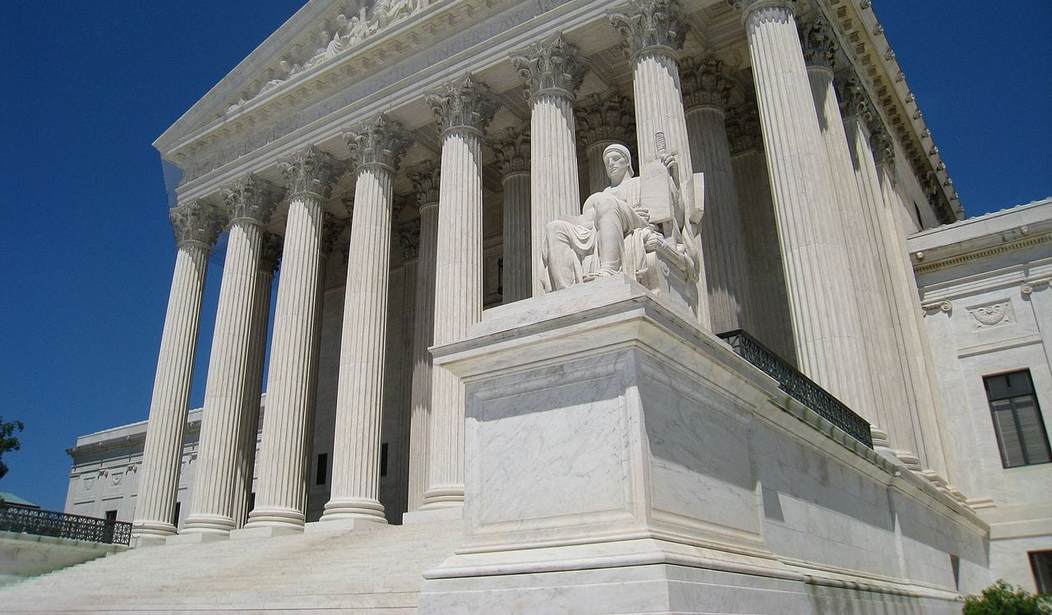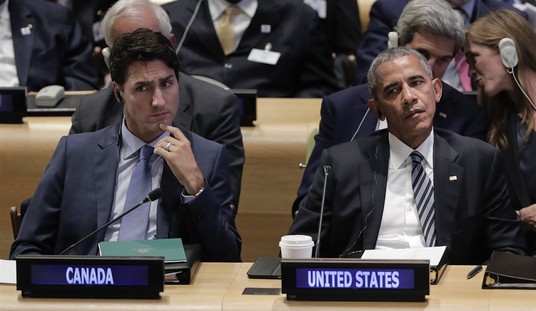On Monday, the U.S. Supreme Court struck down a Louisiana abortion law holding abortion clinics to higher medical standards, thus protecting the health of women seeking to kill their unborn babies. The four liberals on the Court upheld the standard set in Whole Woman’s Health v. Hellerstedt (2016), ruling that a law restricting a woman’s access to abortion is unconstitutional even though it intends to protect women’s health. Chief Justice John Roberts disagreed with the Whole Woman’s Health standard, yet he concurred with the liberal justices’ judgment in order to uphold the doctrine of stare decisis.
“This case is similar to, nearly identical with, Whole Woman’s Health. And the law must consequently reach a similar conclusion. Act 620 is unconstitutional,” Justice Stephen Breyer wrote in the Court’s opinion in June Medical Services v. Russo (2020). Justices Ruth Bader Ginsburg, Sonia Sotomayor, and Elena Kagan concurred with Breyer’s opinion, while the conservatives on the Court were divided.
The Court’s liberals dismissed the serious health concerns the Louisiana law aimed to address, and insisted that a woman’s right to abortion outweighs any other interests.
The liberals also dismissed Louisiana’s challenge that abortion clinics do not have standing to represent the women whose lives they endanger. Louisiana has argued that it is perverse for abortion clinics — which aim to operate on loose standards that endanger their patients’ health — to represent the very women whose health they would endanger. Yet the Court’s liberals argued that the way Louisiana argued the case in a district court undermined this argument. Justice Samuel Alito, in his dissent, argued that this was a “misreading of the record.”
Pro-life organizations condemned the decision.
“Women seeking abortions have the same right to competent and quality care as patients involved in other surgical procedures. This ruling allows the loophole enjoyed by abortionists to remain open at the expense of the women the abortion industry claims to serve,” Thomas Glessner, president and founder of the National Institute of Family and Life Advocates (NIFLA), said in a statement. “All states, including Louisiana, have an interest in regulating abortion and a duty to protect women. Unfortunately, today’s SCOTUS decision denies this critical principle.”
June Medical Services “demonstrates once again the failure of the Supreme Court to allow the American people to protect the well-being of women from the tentacles of a brutal and profit-seeking abortion industry,” Susan B. Anthony List President Marjorie Dannenfelser said in a statement. “Today’s ruling reinforces just how important Supreme Court judges are to advancing the pro-life cause. It is imperative that we re-elect President Trump and our pro-life majority in the U.S. Senate so we can further restore the judiciary, most especially the Supreme Court.”
78 Percent of Americans Back Abortion Clinic Standards in Supreme Court Case
Dannenfelser praised Justices Neil Gorsuch and Brett Kavanaugh, who joined with Justices Clarence Thomas and Samuel Alito in dissenting from Breyer’s ruling.
Jeanne Mancini, president of March for Life, said the pro-life march organization “is appalled” by the decision, “which failed to hold Louisiana abortion facilities accountable for their numerous health and safety violations. The legislation at issue in June Medical Services v. Russo was designed to safeguard women’s health and safety, which the abortion business in Louisiana egregiously sidelined for the sake of profit. No abortion facility should receive a free pass to provide substandard care.”
How did the Court rule against Louisiana? In his dissent, Justice Kavanaugh explained the confusing result.
“Today, five Members of the Court reject the Whole Woman’s Health cost-benefit standard,” Kavanaugh wrote. Yet “a different five Members of the Court conclude that Louisiana’s admitting-privileges law is unconstitutional because it ‘would restrict women’s access to abortion to the same degree as’ the Texas law in Whole Woman’s Health.”
For his part, Roberts dissented from Whole Woman’s Health. But he argued that the Court had to uphold the unconstitutional Whole Woman’s Health standard.
“I joined the dissent in Whole Woman’s Health and continue to believe that the case was wrongly decided. The question today however is not whether Whole Woman’s Health was right or wrong, but whether to adhere to it in deciding the present case,” Roberts argued. “The legal doctrine of stare decisis requires us, absent special circumstances, to treat like cases alike. The Louisiana law imposes a burden on access to abortion just as severe as that imposed by the Texas law, for the same reasons. Therefore Louisiana’s law cannot stand under our precedents.”
In other words, even though Whole Woman’s Health was wrongly decided, its precedent forces the Court to strike down the Louisiana law. Under this view, the Supreme Court would have had to apply heinous misrulings like Dred Scott v. Sandford (1857) and Korematsu v. United States (1944) merely because they are precedents.
Ilya Shapiro, a constitutional scholar at the Cato Institute, rightly condemned Roberts’ reasoning.
“Chief Justice Roberts’s capricious application of stare decisis is startling,” Shapiro wrote. “Stare decisis didn’t stop him from overturning precedent in Citizens United, Janus, and Knick, cases in which the precedent was much older and more entrenched, but a very recent 5-4 decision in which he dissented apparently carries more weight. Maybe Roberts ought to stop playing 87-dimensional chess and just call the legal balls and strikes.”
The Whole Woman’s Health standard is rather absurd. According to the logic of the standard, Americans do not enjoy a constitutional right unless they have access to it near their homes. Under this view, the Second Amendment should guarantee a right to a gun shop near every citizen, striking down any gun control provision as unconstitutional.
Yet Roberts held up his hands and said, “I can’t strike down this standard” due to stare decisis. This move is a nod to Democrats, who insist that Roe v. Wade (1973) is a kind of super-precedent protecting abortion. Roberts’ action here appears to uphold that extreme view, even though Donald Trump won the 2016 election in part due to his pledge to nominate pro-life justices to the Supreme Court. Roberts’ ruling here is arguably a betrayal of originalism — Congress never passed a law establishing the Whole Woman’s Health standard — and a rejection of his own duty as a justice to correct a bad ruling.
Tyler O’Neil is the author of Making Hate Pay: The Corruption of the Southern Poverty Law Center. Follow him on Twitter at @Tyler2ONeil.









Join the conversation as a VIP Member